![]() — หน้าแรก — เกาะติดข่าว
— หน้าแรก — เกาะติดข่าว
ข่าวเศรษฐกิจและธุรกิจประจำสัปดาห์
-

Banks might close half of their branches and cut half of their workforce in 10 years – Antony Jenkins, former Barclays CEO
“It's going to mean that bank branches are as common as a Blockbuster video store in a few years’ time,” former Barclays CEO Antony Jenkins told CNBC, predicting about mass closure of physical banks. Two years earlier, Jenkins had also predicted that banks might close half of their branches and cut half of their workforce in 10 years. The trend, he said, is happening faster than he or anyone else in the Fintech industry might have guessed. Thanks to digital leapfrogging, here in Myanmar we have the opportunity to go straight to the era of iflix and Youtube, bypassing the good old times of video rentals or DVD-by-mail. But what it also means is that at the same time, we’re at the forefront of a new paradigm in digital technology. Apply that to the retail banking industry and you’ll realise how banks now face the imperative task of transforming the way they interact with their customers, in order to remain relevant and profitable. -
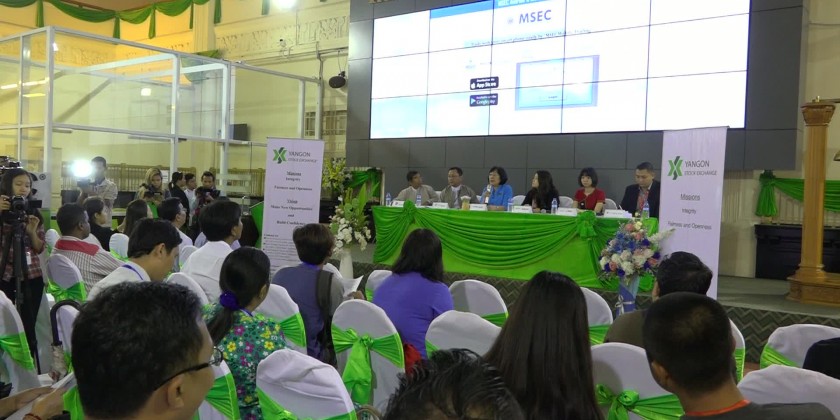
To increase the stock trading volume and build the Myanmar investment market, Yangon Stock Exchange (YSX) permitted four securities companies to trade online in December 2017
Aiming to increase the stock trading volume, an online stock trading system started in December with the approval of the Securities Exchange Commission of Myanmar. The Commission granted the online trading system to four security companies on 26th of December. The new system could help the investors to trade easily, and will also be a boost for the Myanmar investment market. Senior Executive Manager, Yangon Stock Exchange, Thet Htun Oo said “The strong point of online trading is easy to use mobile application, and to trade easily among the security company and customers. It will cover not only urban area but also rural area. The customers need to contract online rules and regulations with the security companies, and download and install the online application. The entire step will take free of charge to the customers.” -
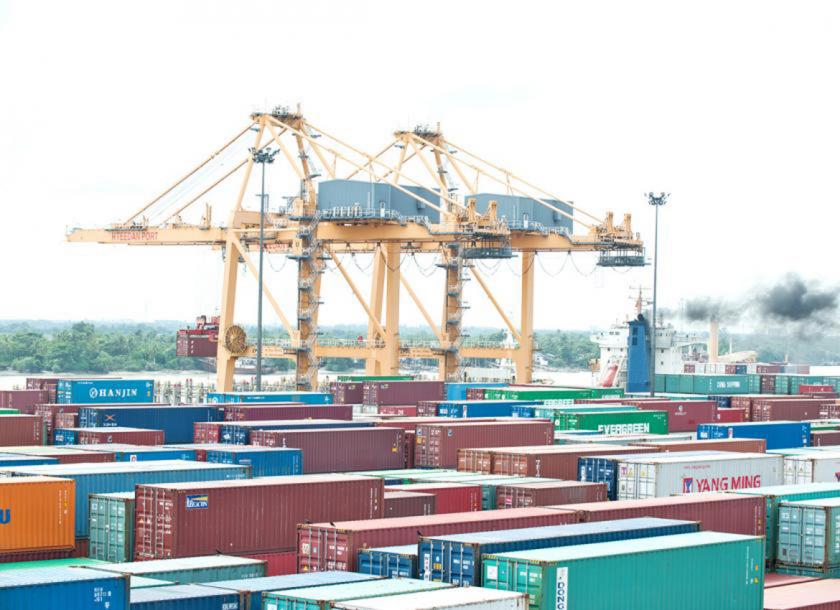
FDI in Myanmar was around $ 4.5 billion between April and November 2017 and there were ten major economic developments throughout the year
2017 was an eventful year for Myanmar, with the economy charting major developments that brought in approved foreign direct investments (FDI) of around $4.5 billion between April and November, created thousands of jobs for locals and propelled larger segments of the population into the middle-class. These included opening up the taxi industry to foreign ride-hailing service providers, approving a slew of new hotels and mixed development projects and taking steps to ease a debilitating liquidity crunch that has stifled growth and innovation among the local small and medium enterprises. For the 2016-17 fiscal year, Myanmar’s Directorate of Investment and Company Administration (DICA) expects total approved FDI to exceed last year’s $6.7 billion total. -
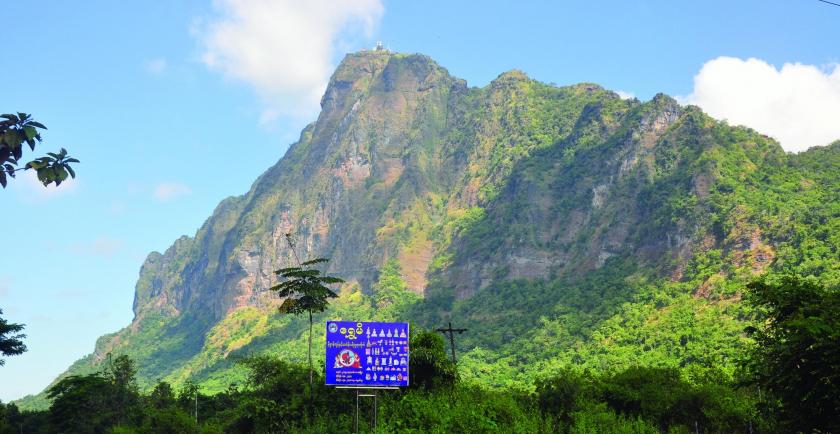
Myanmar Native Land Public Company plans to build a resort which consists of 30 bungalows and a shopping center at Lumbuni Garden, Mount Zwekabin, Kayin State
Myanmar Native Land Public Company will develop a construction project which consists of 30 bungalows and a shopping center at Lumbini Garden which is at the base of Mount Zwekabin, Kayin State. The project which includes parking lots for both big and small vehicles, and a swimming pool will be developed when the cable car project started four years ago is finished. The project will be implemented on the land of six acres with $12 to $15 million capital investment. ‘‘We will implement our second project at the base of Mount Zwegabin. As the cable car project is expected to finish at the end of next year, we will discuss again for the project,’’ U Ba Nyar Zaw, President of Myanmar Native Land Public Company, said. -

The Ministry of Industry plans to proportionally allocate SME loans to regions and states next year
Ministry of Industry is planning to proportionally allocate loans for Small and Medium Enterprises (SMEs) to the regions and states next year. SMEs loans are reported not to reach every SME across the country. Enterprises in major cities such as Yangon and Mandalay have more advantages to get loans, for they know and follow the rules better and handle the financial statistic better, and more systematically while the enterprises in rural towns, on the other hand, lack knowledge on how to follow the rules and procedures to get loans. ‘‘People in remote places such as Chin and Kachin can’t get loans if they go straight to the bank, so we will allocate loans proportionally. So they will get equal access to the loans and more opportunities,’’ Daw Aye Aye Win, Director General of the Ministry of Industry. -
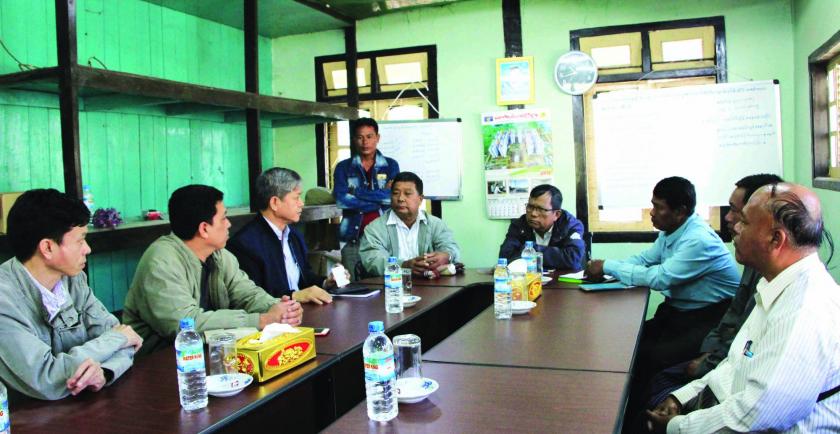
UMFCCI plans to cultivate ginger in Rakhine State as a pilot project in March 2018 to strengthen export
Union of Myanmar Chambers of Commerce and Industry (UMFCCI) is planning to start growing ginger in Kyauktaw, Ponna Kyun, Buthidaung and Maungdaw townships in Rakhine State as a pilot project in March 2018 in cooperation with Rakhine State Federation of Chambers of Commerce and Industry, Rakhine State government, local residents and private partners. UMFCCI visited Rakhine State on December 14th and met local people to talk about what they needed. Rakhine State Federation of Chambers of Commerce and Industry will support with 1,000 visses which are relevant to 1,630 kilograms and Myanmar Fruit, Flower and Vegetable Producers and Exporters Association will provide technical assistance. Rakhine State Federation of Cooperative Association and Public Company will implement a pilot project in four townships. -

Investors are still interested to invest in companies listed on the YSX, despite Myanmar stock price index falling 23 points or around 4.7 percent in mid-December 2017
The Myanmar Stock Price Index tumbled 23 points, or around 4.7 percent last week, closing Friday at 463.70, after officials from the Directorate of Investment and Company Administration (DICA) said the new Myanmar Companies Law would take at least another 8 months to implement. The new law, which replaces the existing 1914 Myanmar Companies Act, brings the country’s corporate legislation on par with its more developed neighbours. One of the major issues of implementing the new law though, is a clause in the legislation allowing foreigners to take up to a 35pc share in local companies, including companies listed on the Yangon Stock Exchange (YSX). If implemented, the move would pave the way for greater liquidity on the exchange and encourage many more companies to list. -
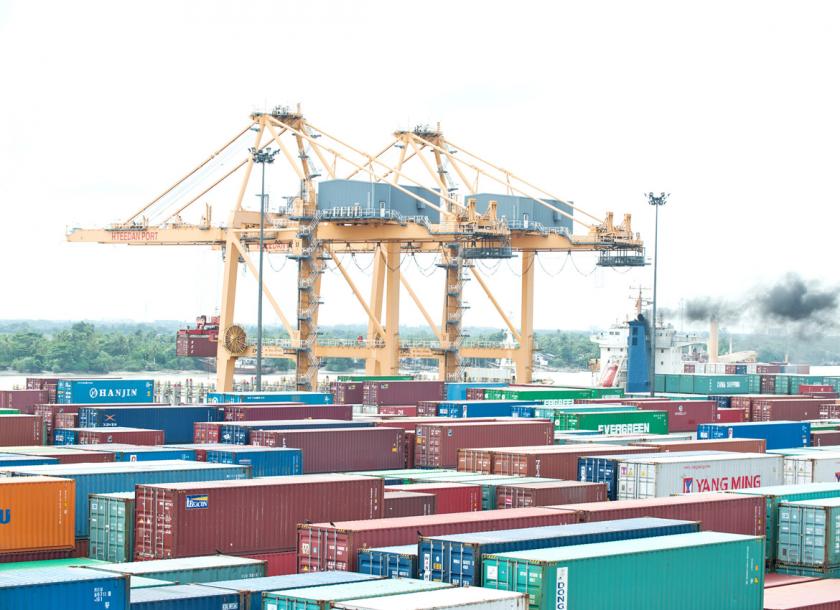
Investment potential still remains despite lower than expected economic growth in Myanmar due to Rakhine risks
Economic growth in Myanmar slowed in the 2016-17 fiscal year despite notable reforms and a healthy level of foreign investment commitments, according to the World Bank’s Myanmar Economic Monitor. Over the medium-term, growth may well continue to fall short of expectations as the Rakhine humanitarian crisis continues to unfold. The World Bank has lowered its growth projections for 2016-17 to 5.9 percent, below expectations and slower than growth of 7pc in 2015-16. Investment demand decelerated during the year as private investors held back their plans pending greater clarity in the government’s economic agenda. Due to fiscal constraints, public investments also declined, dropping to just 5pc of GDP during the year compared to 6.2pc in 2015-16. -

Karen National Union (KNU)-backed economic project in Tanintharyi Region is stalled pending public opinion
A major economic project backed by the Karen National Union (KNU) will be stalled pending comments from the public. The Mae Tha Mee Khee Industrial Estate Project will be set up on 7,760 acres of land located five hours from Dawei, the capital of Tanintharyi Region, which is under KNU control. Parliament members are scheduled to make a trip to the project site to gather views from the local communities affected. They will file a report at the regional government’s office afterwards. “We need to get community views on the project and investigate if the project will really benefit all the stakeholders,” said U Khin Mg Aye, President of the Tanintharyi Region parliament. -
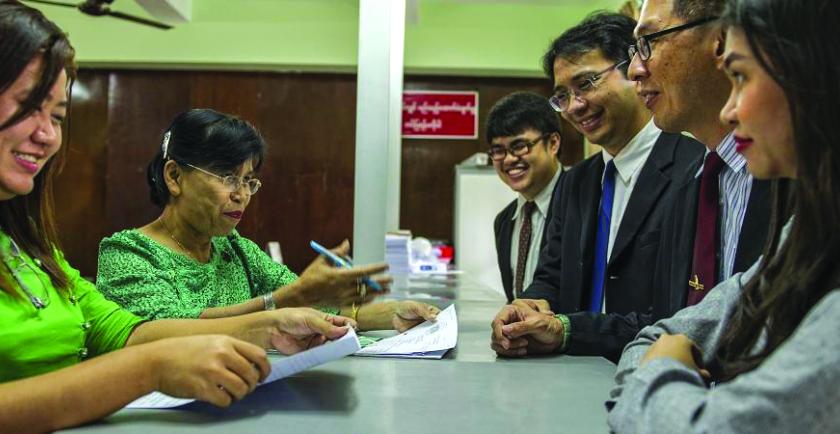
According to the Directorate of Investment and Company Administration (DICA), all companies must register online within six months of 1st August 2018 when the Myanmar Companies Act bylaw comes into effect
All companies in Myanmar must re-register online within six months of Au¬gust 1, 2018, when My¬anmar Companies Act bylaw comes into effect, according to the Directo¬rate of Investments and Company Administration (DICA). It is, according to U Aung Naing Oo, Director General of DICA, part of the e-government plan the government trying to implement. ‘‘All the registered com¬panies must re-register. It won’t be very difficult, it’s just simply complet¬ing the online forms,’’ he added. The new Myanmar Com¬panies Act emerged when Amyotha Hluttaw, the upper house, approved it on November 22nd. The bylaw includes changes to online registration, erases tax exemption for small and medium companies, and allows foreigners to invest up to 35 percent in citizen-owned companies.
เกาะติดข่าว
Copyright © 2014 Business Information Center All Rights Reserved.







